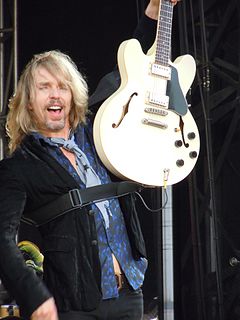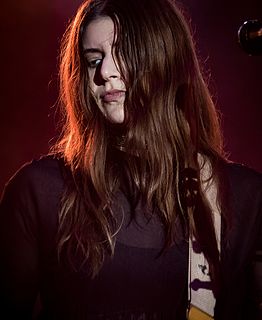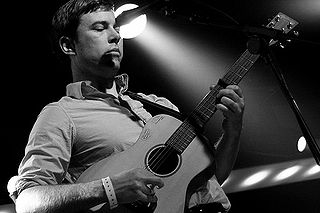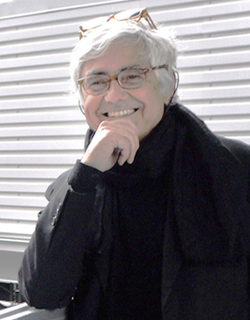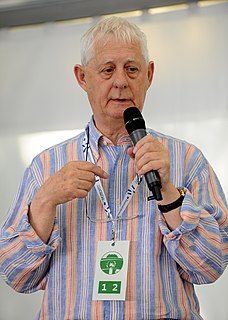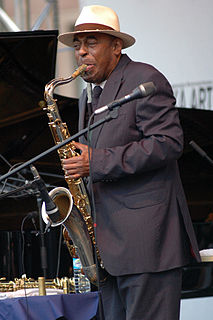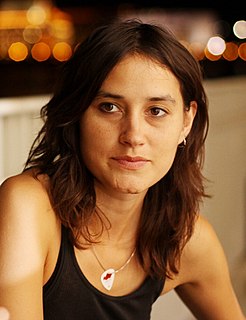A Quote by John Cage
We are living in a period in which many people have changed their mind about what the use of music is or could be for them. Something that doesn't speak or talk like a human being, that doesn't know its definition in the dictionary or its theory in the schools, that expresses itself simply by the fact of its vibrations. People paying attention to vibratory activity, not in reaction to a fixed ideal performance, but each time attentively to how it happens to be this time, not necessarily two times the same. A music that transports the listener to the moment where he is.
Quote Topics
About
Activity
Attention
Being
Changed
Could
Definition
Dictionary
Each
Each Time
Expresses
Fact
Fixed
Happens
How
Human
Human Being
Ideal
Itself
Know
Like
Listener
Living
Many
Mind
Moment
Music
Music Is
Necessarily
Paying
People
Performance
Period
Reaction
Same
Schools
Simply
Something
Speak
Talk
Them
Theory
Time
Times
Two
Use
Vibrations
Which
Related Quotes
I've become this voice for a millennial generation of feminism, which is awesome, but at the same time it's complicated. We all know I'm a girl, I'm a woman, but it's difficult to figure out how to talk about it and express how important it is without beating it with a hammer and having it be, "So you're a girl in music! So you're a girl in music!" Yes, I'm a girl in music - can we just talk about something else?
Music making features real-time creation, real-time decisions and actions. It's basically improvisation, which is the stuff of everyday life. In the realm of discourse about music, improvisation is marginal, but in the realm of doing it, it's omnipresent. Strange distinction here: we're improvising all the time, but when we tend to talk about music, we tend to talk about objects that are fixed, like recordings, scores, pieces.
I'm friends with a lot of writers and so many of them say how much they hate signings and how they leave after a certain period of time. But what is so hard about sitting there while people tell you how much they love you? And if you don't like it, well, learn to like it. I try to take one person at a time. I never look down the line to see how many more people are left. And I always try to make people talk about something besides whatever they planned to say.
There is no piece of music that could relate to anything else but itself and its world. It is truly an independent. The one thing coplanar with music is the compositional aspect, the fact that you are composing something. Architecture is essentially a score, and what happens with it depends on the people who play it, enjoy it, use it, or hate it.
Yet, isn't it strange, isn't it weird, how we can KNOW that someone is not behaving in the way we imagine, and at the same time we can be totally convinced that he is! How clever the human mind is, that it can accept two contradictory things as 'facts.' Yes, I know that in this case one 'fact' was untrue. But the human mind can KNOW something is untrue and still accept it as a 'fact,' and act on it as if it were true.
Whether for company or isolation or just to make it a pleasurable experience, I have music in my ears all the time. I tend to listen to the same things, so I don't really pay too much attention to it. But it's there, and it's nice, and I do pay more attention to it than I probably should. I think, 'How can I use this music in something?'
Acting is a bit like being an athlete. You spend all your time getting ready to do something for two minutes. All the things that made my career in the movies happen took two or three minutes, which is the time that it takes for a 'take'. In that time, something happens. That's what people know you for, just like someone running the hundred metres.
Music is a language, and it's like a dictionary that has a lot of words, but if you limited yourself to a couple of definitions you would be illiterate. If one limits oneself to a peculiar definition like 'new music,' 'avant-garde,' or something like that, I think it's like cutting out half the dictionary.
I think the best thing about music is that someone could be writing a song that's so personal, and it tells so many other people's story at the same time. It kind of exemplifies that we are all kind of on the same wave[length] - it's amazing how comforting somebody else's story can be, because we have experienced their story in some way or another, and I can totally relate, and I get to feel that feeling and the expression of that emotion. I get to feel like as a listener, that somebody understands me, which is pretty incredible.
We live in an age of music for people who don't like music. The record industry discovered some time ago that there aren't that many people who actually like music. For a lot of people, music's annoying, or at the very least they don't need it. They discovered if they could sell music to a lot of those people, they could sell a lot more records.

